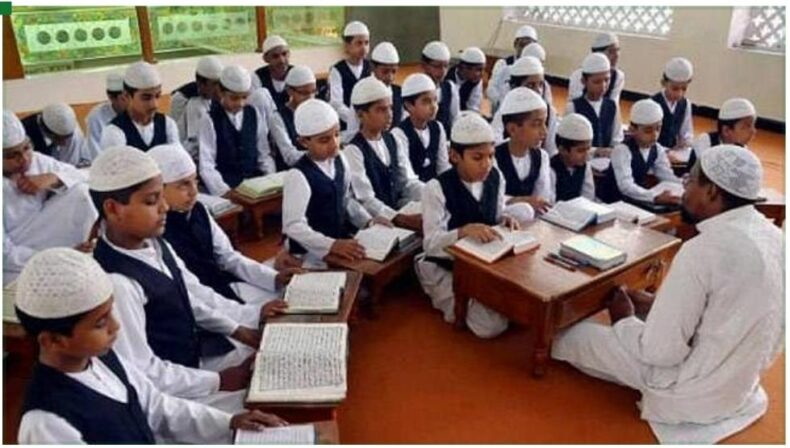The decision by the Uttar Pradesh government to survey unrecognized madrasas has met with fierce criticism from autonomous Muslim outfits like the All India Muslim Personal Law Board (AIMPLB) and Jamiat Ulama-i-Hind. While All India Majlis-e-Ittehadul Muslemeen (AIMIM) chief Asaduddin Owaisi has labeled it as a “mini NRC,” Bahujan Samaj Party (BSP) President Mayawati is also vocal about her criticism of the move.
However, that’s about it when it comes to criticizing the move. The Samajwadi Party, which has a large Muslim voter base, has declined to comment on the situation and has maintained a conspicuous silence. Congress, on the other hand, has adopted a soft approach and asked for the inclusion of Shishu Mandirs and Montessori schools in the survey.
Last week, Mayawati tore into the Uttar Pradesh government, led by the BJP, and accused it of oppressing and terrorizing Muslims in an attempt to interfere in the affairs of private madrasas. She has labeled the survey “unfair” as it targets institutions that operate on “qaum ka chanda” (community donations).
Samajwadi Party leaders have refused to comment on the survey, which began on September 9th, and said that they’d prefer to wait and watch. Sources believe that the party spokesperson has been given strict instructions to avoid commenting on the matter. While certain dissident quarters within the party have questioned Akhilesh Yadav’s silence, the defenders have claimed that it’s part of a larger strategy, which will be adopted full-fledgedly in the run-up to the polls, to counter the BJP’s “politics of polarization”.
Congress spokesperson Surendra Rajput commented, “Madrasa is just another name for a school, just like a Montessori school or a Shishu Mandir. So the survey should include everyone. Moreover, if the government is so worried about foreign funding, then they should acknowledge it as a failure of the central government.”
Government Response
When asked about the Opposition’s stance, state Minority Affairs Minister Dinesh Azad Ansari clarified that “The survey began in response to a complaint from a madrasa in Lucknow where allegedly the students were being chained by the teacher. At the post inquiry, it was revealed that the madrasa was not recognized, and then came the recommendation by the National Commission for Protection of Child Rights to have a survey of all madrasas.”
The minister also expressed that the allegations of “interference” were uncalled for and were a part of “unnecessary politics.” The minister added that “The survey is not an intrusion but constructive support. We wish to help madrasas through schemes, but that would only be possible if we had data. We are also giving out the forms to different madrasas so that they can apply for various schemes.”
He said that Yogi Adityanath’s government had introduced an “e-learning” application for madrasas to aid in the state’s mission of imparting quality education. The survey, according to Mr. Ansari, was the first step towards achieving it. He also requested the madrasas to not be confused about the government’s intentions.
However, Mr. Ansari’s colleague, Sanjay Nishad, from the BJP ally Nishad Party, conveyed somewhat opposite views in Baghpat. He said, “Whenever a terrorist or criminal is caught, they are found to have a connection with madrasas. These madrasas should be improved, and their stains should be washed. This new survey will be conducted to educate students so that they are not taught religious hatred.”
What the Survey Entails
It is estimated that there are 17,000 recognized madrasas operational in Uttar Pradesh, but there is no official data on the unrecognized madrasas. The survey was started following an order dated August 30th, which was sent to all District Magistrates (DMs). The survey aims to find details of the “source of the funding” along with “details of affiliation with non-governmental organizations,” among other things.
The survey teams will include the sub-district magistrate of the concerned tehsil, the district’s basic education officer, and the district minority welfare officer. The survey is to be completed by October 5th and reports submitted by October 10th, along with additional comments and remarks, if any.













